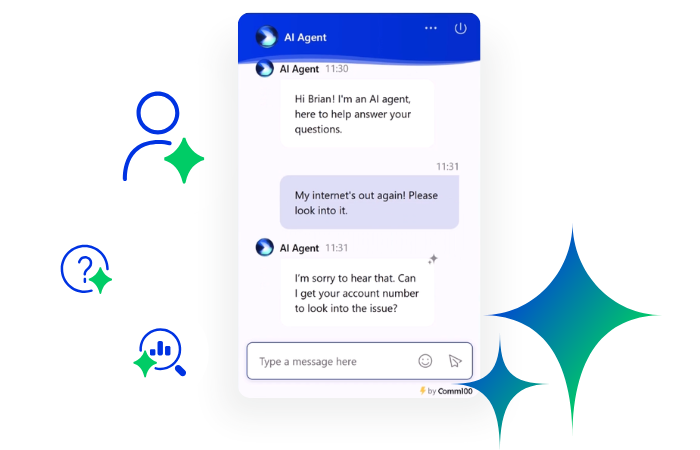Guest blog – Nahla Davies is a software developer and tech writer. Before devoting her work full time to technical writing, she managed—among other intriguing things—to serve as a lead programmer at an Inc. 5,000 experiential branding organization whose clients include Samsung, Time Warner, Netflix, and Sony. You can find her on LinkedIn.
We live in strange times, to say the least. The whole world is currently in a very precarious and delicate situation.
First, the COVID-19 pandemic revealed the need for companies to keep business going responsibly. Now, as racial relations dominate the news, many companies may feel the need to reassure their consumer base that they are on the right side of history. However, making the right moves today is easier said than done.
The CEO for CrossFit recently had to issue an apology and eventually resign due to comments he made about George Floyd on Twitter. However, the apology and resignation only came after the company suffered heavy losses, such as losing a partnership with Reebok.
Plenty of other companies are also having their own internal reckonings. Numerous employees from many different organizations have come forward to discuss the toxicity and racism present within that workplace. It all begs one question, “How do customer service agents speak to customers during these sensitive times?”
Empathy statements are a good start, but companies have huge platforms to utilize. And there are plenty of mistakes a customer service team can make on social media. Here are the mistakes to watch out for so that you don’t inadvertently lose revenue because of a lapse in judgment.
1. Making It About You
It’s a good idea to let your customer base know where you stand on controversial topics. However, you don’t want to lump in a message statement about supporting Black Lives Matter and then a paragraph later talk about an awesome sale you’re having.
Discussing promotions during a message statement can come across as tone deaf. It can actually hurt your brand in the long run. Promoting a brand is more than just talking about what products or services you have to offer. It’s about making people feel a certain way when they think about your business.
People aren’t going to remember what product you tried to sell them in an email blast. But they will remember your commitment to important movements, especially if you back up those words with supportive actions.
2. Acting Too Self-Serving
A lot of people and companies have suffered over the last few months. Many businesses have had to close due to shutdowns over the COVID-19 pandemic. And with a second wave potentially on the horizon, businesses may need to shut down again.
You may naturally feel worried about the future – and so do your customers. Your first priority should always be about your customers’ well-being.
It’s natural for customers not to feel comfortable enough to visit a store in-person. Your customer service team trying to egg people on to come back in may be viewed as too self-serving, and people will know you valued profits over people’s health.
It’s okay to try to drum up business, but your focus should always be on how you can help your customers. One way to build on consumer trust is to reach out or send surveys about what would make people feel comfortable enough to come into your store again, and incentivize the happy customers to review your business. You really need to listen and implement ideas that are feasible for you.
You can have policies about how many people are allowed in your store at any given time. You can also do away with some manual expenses by scanning receipts digitally with the simple snap of a picture on your phone. Frame these policies as helping the customers to keep them safe as opposed to increasing your own wallet.
3. Making Empty Promises
It’s easy to resort to hyperbole in your customer service messages. Plenty of businesses will say things like “We’re always here for you” over social media. But how many actually abide by those statements?
You can say you’ll always be there, but if your customer service team stops responding to messages at 5 p.m., then that’s not really the case. Customers understand that every business is made up of people, and those individuals are only human. It’s understandable if you don’t have the resources to respond to every message within an hour.
In these trying times, customers value honesty over everything else. With that being said, you want to still be careful about sharing too much information.
Profits are down for many businesses. That doesn’t mean you should share your second quarter revenue stream with your consumer base.
It’s a good rule of thumb that if something doesn’t directly impact your customers, then they don’t need to know. It’s incredibly dangerous to show off any instability within your organization, which can include a loss of revenue or internal operational shifts.
Even if it’s something you can easily recover from, that kind of information sets a bad vibe for your customers. They may wonder how much longer your business can remain viable, and they may start looking for other businesses to shop at if they think you won’t be around too much longer.
Emotions matter a great deal to consumers. If they feel like your business is heading downhill, then it can be tough to come back from that.
5. Offering Deals That Seem Too Good To Be True
During times of crisis, many businesses will resort to insane promotions just to try to get people to buy something. It may seem like a good strategy, but your team should think twice before hosting any insane promotions.
You can of course still have deals and promotions, but they should be in line with what your company has offered in the past. Offering products at insanely low rates may end up doing more harm than good.
Drastic discounts can reek of desperation. That’s particularly true for B2B companies. Other entities may take advantage of those discounts at the moment, but they’ll wonder if you’ll be around much longer to work with in the future.
Additionally, you need to make sure the promotion will work in your favor in the long run. After all, if people buy everything they need from you now, they may not need it later once the crisis passes, and you could lose out on revenue in the long run.
6. Using Generic Messages
When the COVID-19 crisis first started, numerous businesses sent out emails to people about how they would be there for them during this trying time. They were nice sentiments, but for the most part, they all sounded about the same.
It can be hard to get people to read an email blast ordinarily, but it becomes even harder when people already have a good idea of what your COVID-19 email is going to say. Every business can benefit from an email marketing service, but only if it’s done properly. In fact, some studies have shown that email campaigns are 7x more effective at generating sales than Twitter, Facebook, and LinkedIn… combined
Your customers expect you to be there for them. But what else do you have to offer? Saying how you’ll go above and beyond guidelines to keep people safe in your stores or saying how you’ll donate money to a worthy organization goes a long way.
Your email immediately stands out. Customers remember the little things, so give any email you make about a crisis stand out by having actual information people can benefit from.
7. Ignoring the Situation
Even when the current crises pass, there will always be something else going on in the world to keep people on edge. It may seem like a lot to keep up on, but you never want to come across as insensitive to anything that could impact your customers’ well-being.
Silence speaks volumes. You don’t have to move heaven and earth for your consumers, but you need to at least show that your team is aware of the situation going on in the world and how that may affect your customers.
8. Forgetting To Be Human
A lot of consumers become annoyed because it can be so hard to speak with an actual human being even when times are relatively normal. AI may have overtaken numerous companies’ processes, but when it comes to times of crisis, you need a human touch.
It’s natural that your customer service team wants to think about the company’s profits. However, there is a human on the other side of that phone call or computer screen. And your thoughts should always be with them.
During times of crisis, people have a lot of uncertainty. If there’s any information you can provide to appease those fears, it can go a long way.
The world is filled with tragedies. And customers care a great deal about where companies stand on important issues.
It’s paramount to be upfront with where your business stands and what action your team is taking to make customers feel safe during times of uncertainty. Your prices may be higher, or people may need to drive a little further to get out to you. But when customers feel a connection with your company, they’ll make the effort to support you.
Download: 101 Ready-to-Use Live Chat Scripts for Sales and Customer Service
Inside this eBook are 101 ready-to-use live chat scripts for use in a huge range of interaction types experienced across many industries.
Download Now
Ebook







